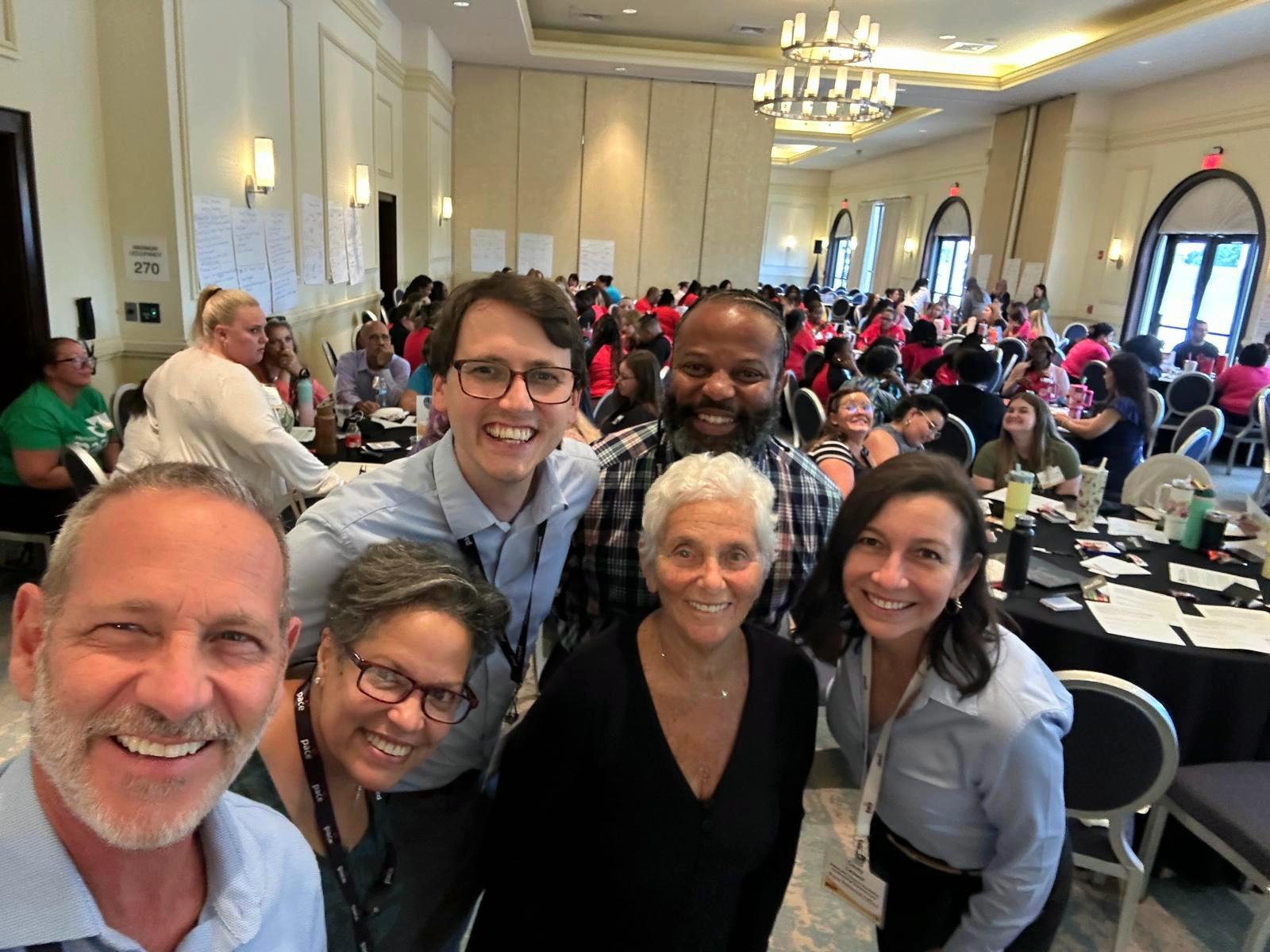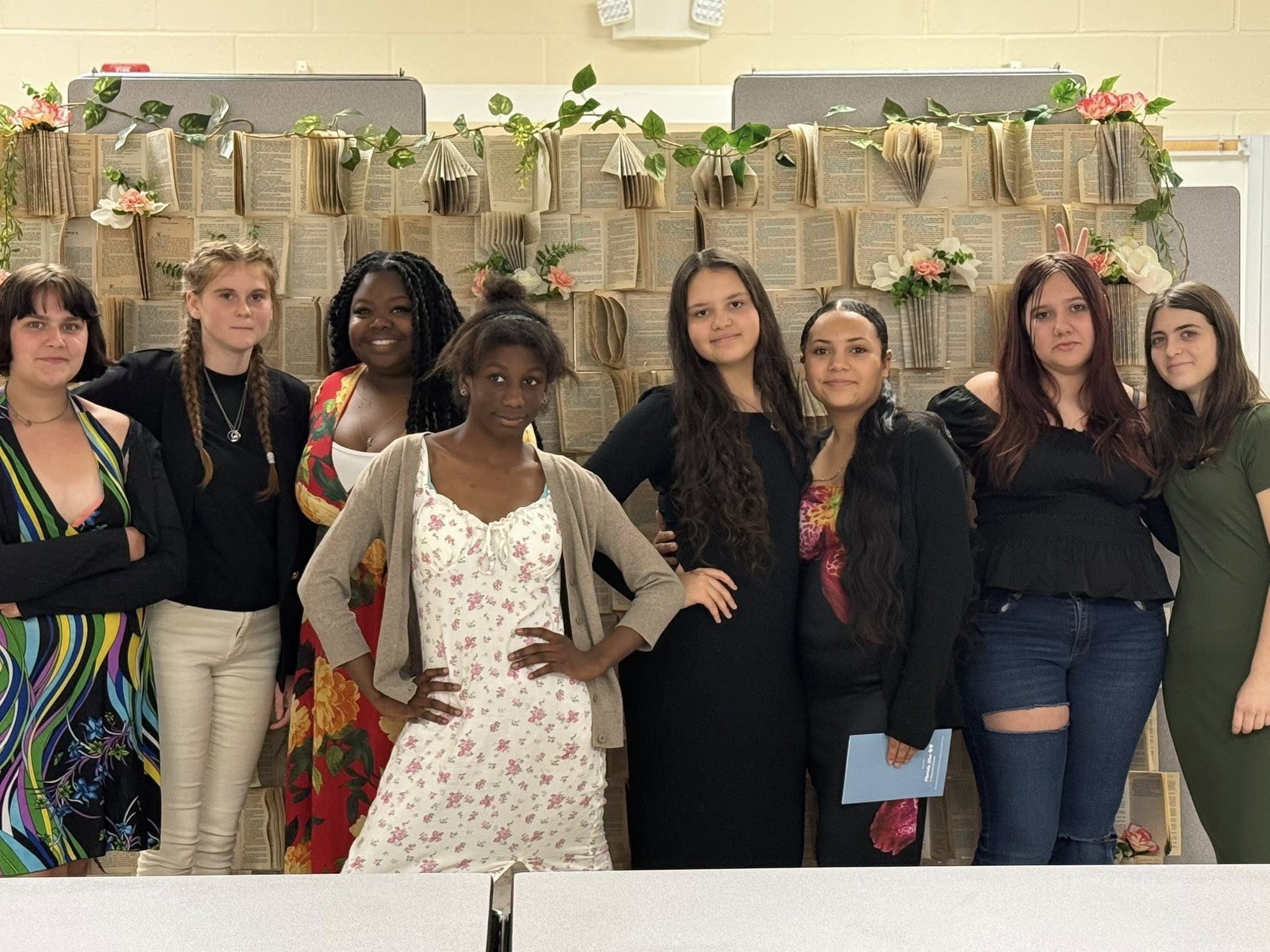With the theme of “Her Story,” Pace Center for Girls Citrus shared with the community at a fundraising breakfast how the all-girls school helps girls rewrite their stories of trauma, instability, violence and/or abuse.
At Pace, girls in middle- and high-school grades learn not just math and reading, but life skills, how to manage their anger, how to regain lost confidence and how to take responsibility for their actions and choices.
They learn that their voice matters, that their mental and emotional health matters, that they are capable and that what may have happened to them in the past doesn’t have to define them, that they have the power to change the trajectory of their future and write their own “happily ever after” ending.
They can learn better communication skills and how to handle stressful situations in a positive way. And they have people who listen to them and value them.
“At Pace, we believe in the power of every girl,” said Pace executive director Angela Kennedy. “Not just some, but all girls, regardless of their story, their past or the obstacles they have faced, deserve a safe, supportive space to grow, to heal and to thrive.
“We believe every girl has a spark inside of her that, if nurtured with care and compassion, can light the way to a future full of strength, resilience and success. The truth is, too many girls are held back by circumstances beyond their control. But at Pace we say, ‘Not anymore.’
“We are here to remove the barriers, to remind every girl that she is seen, she is capable and she is not alone.”
According to information from 2024, Pace Center for Girls, which opened in 2018 in the Lecanto school complex, has served 3,048 girls. The average age is 14. Forty-four percent are middle-school age and 56% are high-school age.
Besides academics and life-skills training, girls can meet with mental health counselors. Also, the class sizes are small, so girls have the opportunity to form positive relationships with their teachers and other girls.
One of the event’s guest speakers, 15-year-old Daniella Diaz, has been at Pace for about a year.
Eight years ago, she and her twin came from the Bronx, New York, to live with their grandmother.
“In sixth grade I started getting into trouble … and my Nana heard about Pace Center for Girls from a school counselor,” she said. “When she first mentioned it to me, I told her, ‘No way! I don’t want to go to an all-girls school.’ But she convinced me to take a tour.
“What stood out to me the most, at the end of the tour they said it was MY decision, and that was the cool thing. I chose Pace because I wanted to change. I wanted to work on my attitude and become a better person.”
She said, “Girls come to Pace for different reasons. People assume we’re troubled or bad, but that’s not true. We are here because we want to grow, to be better than our past, our choices or our challenges in our environments.”
She added that after leaving Pace, her goal is to join the Army and go to school.
“One day, I hope to earn a degree in psychology so I can help others,” she said. “I’m grateful that Pace has given me the chance to change my future.”
Another speaker, Pace board member Rachel Cullen, told the story of a little girl who grew up with a father who battled drug addiction, who couldn’t hold a job and who was often violent.
When the girl was 10, her mother found the courage to leave the abusive situation, and she and her children found safety four hours away from the dad.
However, the girl’s mother started drinking to cover her pain and became an alcoholic. Then, when the girl was 14, her father killed himself.
“Her world was defined by drugs, alcohol, violence and death,” Cullen said. “So, with no stability at home and nowhere to turn, she sought refuge in the place that felt most familiar, the streets. It offered her what she already knew — more drugs, more violence, more pain.
“For the next 20 years she lived in that cycle, unknowingly continuing the generational trauma she was born into — a living hell on earth. But by the grace of God, I stand before you today with six years of sobriety, continuing to break generational traumas. I am that little girl.”
She went on to say that many of the girls who come to Pace have similar childhood and family stories filled with “heartbreak and instability, substance abuse, violence and trauma.”
“I see myself in these girls,” she said. “Twelve-year-old girls — this is the time of life that shapes their future. That’s why supporting Pace Center for Girls matters.”



